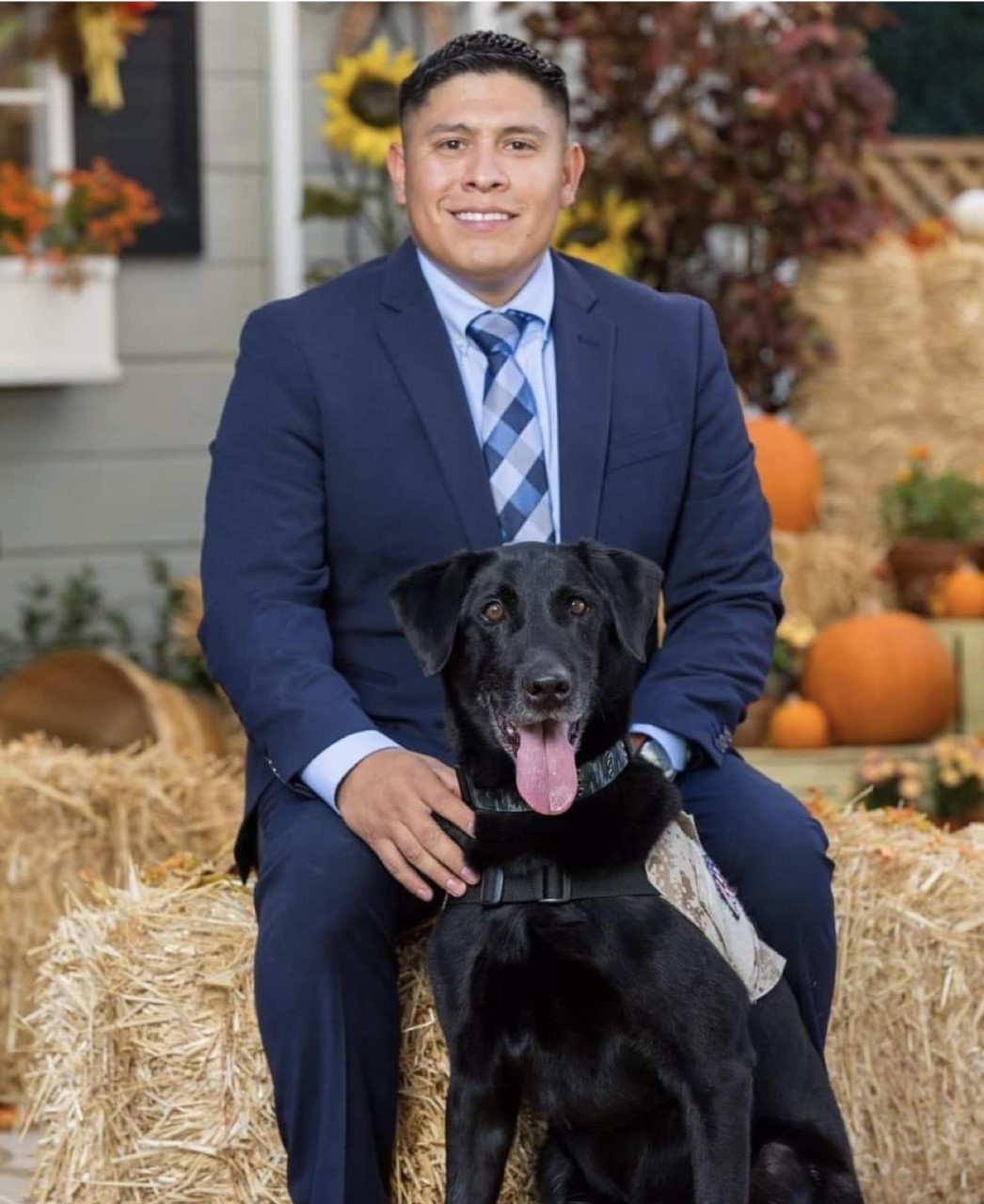
Military working dogs have saved countless lives by detecting explosives and leading search and rescue missions. It is time they are honored as the heroes they are.
U.S. Rep. Vicente Gonzalez, D-Texas-34, has introduced a bill that would allow working military dogs to be buried in national cemeteries.
House of Representatives HR Bill 918, named the Sgt. Fieldy Act, would allow military working dogs to be buried at any national cemetery, such as the Veterans Cemetery in Mission.
The bill is co-sponsored by Republicans Rep. Greg Steube (FL-17) and Rep. Maria Elvira Salazar (FL-27).
The Sgt. Fieldy Act is named after a working dog named Sgt. Fieldy, who served three tours of duty in Afghanistan along with her handler U.S. Marine Cpl. Nicolas Caceres, Gonzalez said.
They both reside in South Texas.
“Military working dogs have saved countless lives by detecting explosives and leading search and rescue missions. It is time they are honored as the heroes they are,” stated Gonzalez. “The story of Cpl. Caceres and Sgt. Fieldy is one of many across the nation and shows that the bond between a soldier and their working dog is unlike any other. I am proud to introduce Sgt. Fieldy Act named after Sgt. Fieldy, a South Texas hero.”
According to the U.S. Department of Defense, there are about 1,600 military dogs working to keep America safe.
“They are as lovable as they are loyal, but make no mistake – these are highly skilled warriors, trained by the best to serve alongside them,” the DOD said on its page about the military dogs.
Troop members are provided the opportunity to adopt the dogs after they are retired from the military, which is what Caceres did.
“As a veteran of Operation Iraqi Freedom, I understand how integral military dogs are to the mission of our troops. I’m glad to cosponsor this legislation which will help to properly honor the life and work of military dogs,” said Steube.
Gonzalez said during Sgt. Fieldy’s deployment she detected several explosive devices “saving the lives of many.” Fieldy served as a bomb detecting dog, and in 2016 was awarded the K-9 Medal of Courage award for canine’s service in the military.
And in 2018, she was selected as the Military Hero Dog in the Hero Dog Awards.
According to Gonzalez, Caceres was recently informed that Sgt. Fieldy—now 15 years old—is unable to be buried in the State Veteran Cemetery in Mission.
A portion of HR 918 reads, the remains of any covered dog may be interred in any open national cemetery under the control of the National Cemetery Administration.
The DOD said dogs didn’t have an official role in the U.S. military until the creation of the Army K-9 Corps in 1942.
“But they’ve joined American troops in battle since the nation’s earliest days, and many are still remembered today for their acts of canine courage,” the DOD said.



